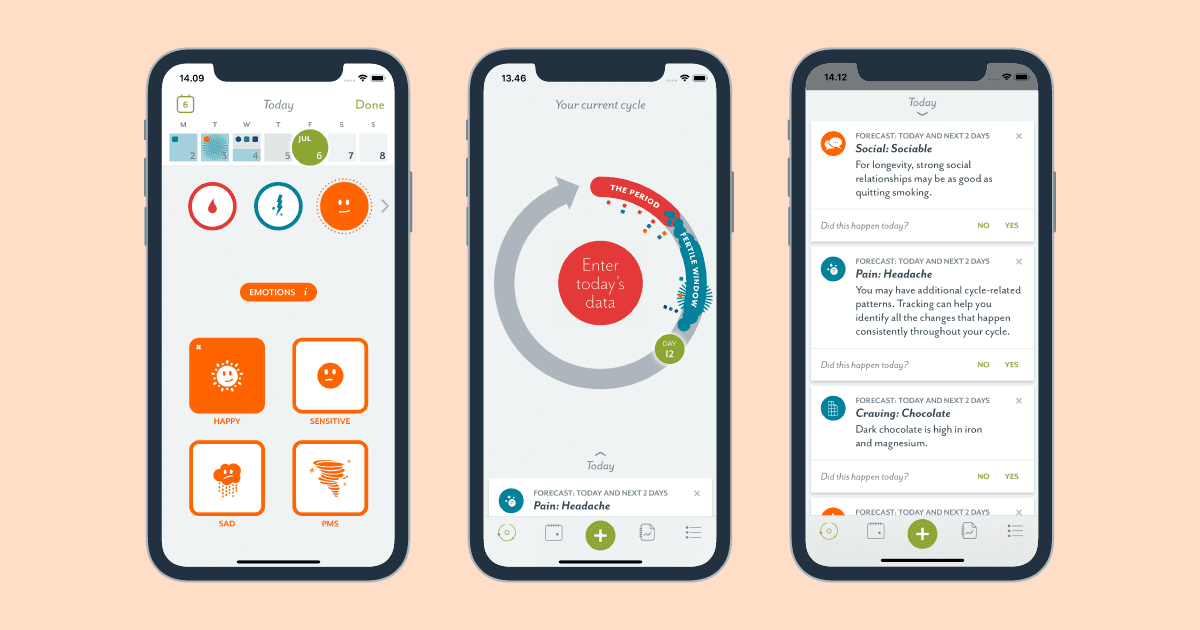Should you rely on an online due date calculator for your official due date? The short answer is probably not. Here’s why:
- Women have different menstrual cycle lengths. Most online due date calculators base their math on the first day of your last period and assume a 28-day menstrual cycle. However, every woman’s cycle length is different! Some women may have a 28-day cycle, and others may have a 32-day cycle. This would affect your potential due date!
- Women don’t always ovulate “on time.” Similarly to menstrual cycle lengths, due date calculators don’t consider that many women don’t ovulate at the same time. These calculators assume that you ovulated on the 14th day of your cycle, but it could be the 11th day, the 16th, or even the 25th! This could alter your actual due date by a week or more.
- Women can have period-like bleeding while pregnant. What you may think is the first day of your last menstrual period could actually be bleeding from pregnancy causes, such as implantation. That would make a calculator’s estimate of how long you’ve been pregnant several weeks off.
- Women have different implantation times. Implantation is the process of the fertilized egg attaching to the lining of the uterus. This can happen five to six days after ovulation, but can vary as well.
- Women don’t always give birth at 40 weeks. Most babies aren’t born on the day they are due. In fact, only 5 percent of women give birth on their exact due date! When a baby is actually born can vary by weeks from the estimated due date.
**An early obstetrical ultrasound is the only way to have a truly accurate due date.**



While online due date calculators can be helpful tools, you should not rely on them for your due date, for planning an abortion, or for putting off obstetrical care. Many people think they are a few weeks pregnant and are actually several more, which means there’s a huge difference in their options.
Why you should schedule a free ultrasound at Clarity for your due date estimate:
- Ultrasounds determine your pregnancy options. For example, you can only safely have a medication abortion up to nine weeks due to adverse side effects. A difference of a week or two really matters if you’re considering abortion pills.
- Ultrasounds confirm viable pregnancy. If a pregnancy isn’t viable, you may not need to seek abortion care or could need a referral for miscarriage care.
- Ultrasounds keep your body safe. A nurse or ultrasound technician can verify that your cervix, vagina, and uterus appear as they should without any additional reproductive health concerns to address.
- Ultrasounds determine if a pregnancy is ectopic. The only way to know that a pregnancy has not been implanted outside of the uterus, which greatly endangers your health, is to visually confirm it by ultrasound.
At Clarity, we can help give you an accurate due date based on an ultrasound. All of our services are provided at no cost to patients. No need to worry about co-pays or bills in the mail—even if you are on a guardian’s insurance!
Don’t waste time worrying about online due date calculators. Our ultrasound-trained personnel are here to inform and empower you to make the best decisions for your pregnancy. Don’t wait to get the care you deserve.
Sources:
Bleeding during pregnancy Causes – Mayo Clinic
Due Date Calculator: How Many Weeks Pregnant Are You?
Estimated Date of Delivery
Ultrasound – Mayo Clinic
The Frequency of Pregnancy Recognition
Birth: Learn more – when your baby’s due date has passed
Miscarriage – Symptoms and causes – Mayo Clinic
Overdue babies – Better Health Channel














